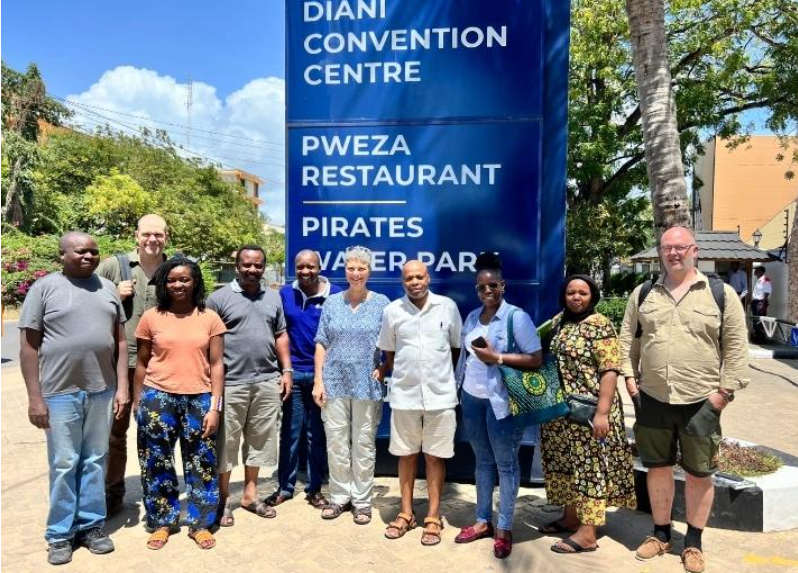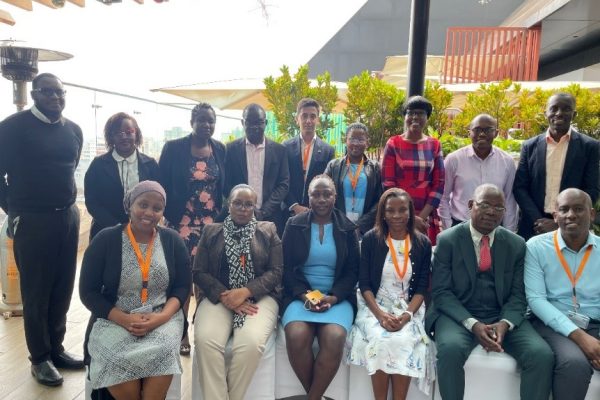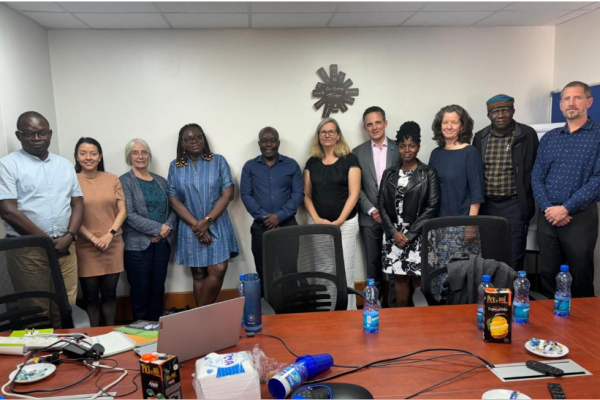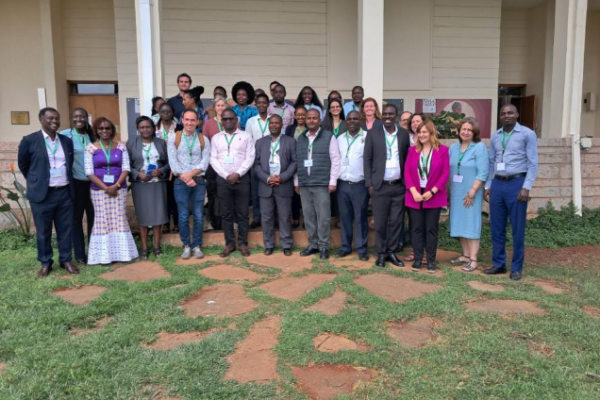Some of the JUCAN Inception Workshop Participants
The Africa Research and Impact Network (ARIN) showcased its critical role in the JUCAN (Justice, Carbon, Nature) project during the recent Inception Workshop held from October 2nd to 7th, 2024, at Pride Inn, Diani Kenya. Florence Onyango, ARIN’s Communications Manager, outlined the project’s communication strategy, emphasizing effective dissemination of research findings to diverse stakeholders, including policymakers, civil society, and local communities.
At the heart of the JUCAN project is the objective to understand the governance arrangements and institutional dynamics of Nature-Based Solutions (NbS) in Kenya, particularly their implications for environmental justice. The project seeks to answer how NbS can be effectively governed to contribute to a just green transition. NbS includes actions designed to protect, sustainably use, manage, and restore ecosystems, thereby addressing critical issues related to climate change, human well-being, and biodiversity goals. This approach has gained traction within global climate and biodiversity conservation agendas, including the United Nations Framework Convention for Climate Change (UNFCCC) and the Convention for Biodiversity (CBD).
The Kenyan team comprises five members from three departments at the University of Nairobi (UoN): the Wangari Maathai Institute for Peace and Environmental Studies (WMI), the Institute for Development Studies (IDS), and the Department of Geography, Population, and Environmental Studies. Collaborating closely with the Kenyan team are researchers from the Danish team, including those from UCPH’s Department of Food and Resource Economics (IFRO) and the Danish Institute for International Studies (DIIS). The team also includes three PhD students and a postdoctoral researcher. The selected PhD candidates will enroll at UoN, with one in each of the involved departments, and engage with the University of Copenhagen (UCPH) as double-degree students. They will work closely with their Kenyan and Danish supervisors across the project’s Work Packages (WPs).
ARIN leads the project’s dissemination strategy through its Work Package on Dissemination (WPD), which has four key tasks aimed at enhancing knowledge sharing and stakeholder engagement throughout the project. One significant initiative is the co-creation of knowledge through the development of a Stakeholder and Participatory Impact Pathway Analysis (PIPA) report. This report will map the roles, contributions, and impact pathways of various stakeholders involved in NbS governance across Africa, providing critical insights that will guide future research and policy implementation.
Additionally, ARIN will compile five mini-NbS case studies from different African countries, showcasing best practices in the application of NbS. These case studies will be released incrementally as blogs, ensuring continuous stakeholder engagement and learning. Throughout the project, ARIN will also host seminar series, network meetings, and conferences, creating platforms for JUCAN researchers to present their findings. These events will foster dialogue between practitioners, policymakers, and researchers, bridging knowledge gaps and promoting cross-sectoral collaboration.
Moreover, ARIN will produce a comprehensive audio-visual media package that includes three short videos, one documentary, and one podcast based on JUCAN’s research findings. This package will be disseminated globally at major events, including the COP meetings under the UNFCCC and CBD frameworks, to raise awareness about the importance of NbS and their role in advancing environmental justice.
In line with capacity building, ARIN plans to design a course on research dissemination tailored for PhD students and early-career researchers, providing practical tools for effectively communicating research on NbS and climate adaptation. Collaborating on panels and side events at COP meetings will further enhance ARIN’s efforts to present JUCAN’s findings to global policymakers, influencing key discussions on NbS governance and environmental justice.
Subject to budget availability, ARIN may also engage in additional policy dissemination activities, such as writing policy briefs and hosting roundtables, to deepen the impact of JUCAN’s findings. The workshop not only served as a platform for planning joint fieldwork and data analysis activities but also strengthened collaboration between Kenyan and Danish researchers.
As a transdisciplinary research organization, ARIN’s involvement in JUCAN highlights its commitment to creating impactful research pathways in climate change and environmental governance. This reinforces its role as a key player in advancing sustainable development across Africa.




